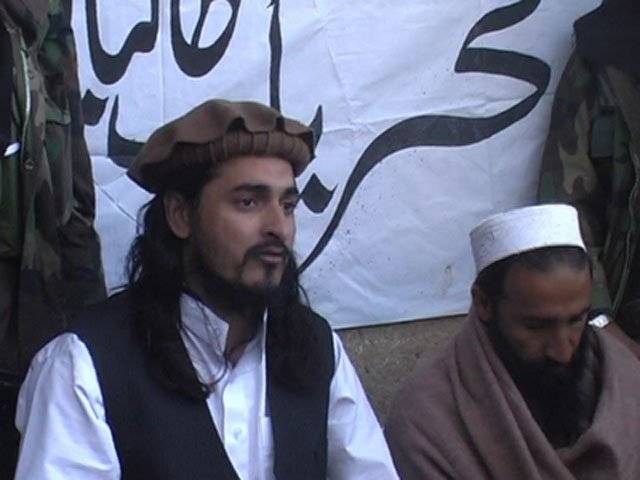The militant commander named by the Pakistani Taliban as its new leader is as ruthless as his predecessor, taking credit for several bloody attacks, and could order more in the coming weeks to prove the terror network is still a force to be reckoned with. While the appointment of 28-year-old Hakimullah Mehsud suggests the Taliban is regrouping after the reported killing of its ex-chief Baitullah Mehsud in a CIA missile strike Aug. 5, questions remain as to whether the al-Qaida allied group will be able to unite around him. Also unclear is the direction the movement will take under new leadership. Baitullah was known for ordering suicide strikes against Pakistani civilian, government and security targets, often in spectacular fashion in major cities far from border areas. Hakimullah may decide to direct some or all of his forces across the border in Afghanistan like other jihadi commanders in the northwest, joining insurgents there in the fight against U.S. and NATO forces as they try to stabilize the country eight years after the invasion. Two close aides to another commander, Maulvi Faqir Mohammad, said on Saturday a 42-member Taliban council, or shura, had appointed Hakimullah new leader. Like other members of the network, he insisted Baitullah was alive but sick, hence the need for a new chief. U.S. and Pakistani officials are almost certain he is dead. ''I do confirm that a shura held Friday ... has elected Hakimullah Mehsud (as) the new chief of the Taliban,'' said one of the aides, Bakht Zada, adding it was an unanimous decision. ''Now all these talks of differences should end. There have not been any differences ever.'' Pakistan's Taliban is a loose alliance of disparate groups and tribal factions that Baitullah Mehsud had managed to unify. Hakimullah comes from the same tribe as Baitullah and had been seen as a likely replacement. Earlier this month, Pakistani intelligence agencies claimed Hakimullah had been killed in a shootout between rival factions over who should to take over a movement that controls large swaths of territory close to the Afghan border, up to 25,000 men and much arms and cash. Hakimullah called The media to prove he was still alive after those reports. The selection of Hakimullah could shore up an organization, said Kamran Bokhari, director of Middle East analysis with Stratfor, a global intelligence company. ''It's an attempt to stabilize the group after the initial reports of infighting,'' Bokhari said, noting the loss of Baitullah was ''a massive blow to the organization.'' As military chief of Baitullah's Tehrik-e-Taliban Pakistan, or Pakistani Taliban Movement, Hakimullah commanded three tribal regions and has a reputation as Baitullah's most ruthless deputy. He first appeared in public to journalists in November 2008, when he offered to take reporters on a ride in a U.S. Humvee taken from a supply truck heading to Afghanistan. Authorities say he was behind threats to foreign embassies in Islamabad, and there was a 10 million rupee ($120,000) bounty on his head. Hakimullah claimed responsibility for the June 9 bombing of the Pearl Continental hotel in the northwestern city of Peshawar, and the attack on the Sri Lankan cricket team in Lahore earlier this year. He also threatened suicide bombings in Pakistani cities in retaliation for a recent army offensive in the Swat Valley. Since Aug. 5, Pakistani officials have been keen to portray the Taliban as in disarray, saying commanders and the rank-and-file were fighting among themselves. At one point, Mohammad -- who comes from a different part of the tribal region -- claimed to have taken over the leadership. While it is unclear whether he will be able to maintain unity, Hakimullah was likely chosen for his operational capabilities, said Bokhari, adding a revival of suicide bombings could be expected. More attacks would demonstrate that the Pakistani Taliban was intact and able to operate despite recent setbacks, he said. ''I think that the decision of the shura to appoint this particular individual is based on that consideration.'' Interior Minister Rehman Malik said the government had received intelligence reports about Hakimullah's appointment ''as the chief terrorist'' but there was no official confirmation. Another close Mohammad aide, Sher Zamin, also confirmed that Hakimullah had been elected as the new Taliban chief.
Friday, April 19, 2024
Shura elected Hakimullah Mehsud as the new chief of Taliban: Bakht Zada

President calls for meaningful dialogue to end polarisation
April 19, 2024
KP minister briefed on issues about sales tax on services
April 19, 2024
64th anniversary of freedom fighter Mirzali Khan marked
April 19, 2024
893,000 students appear in SSC exams in KP
April 19, 2024
Hepatitis Challenge
April 18, 2024
IMF Predictions
April 18, 2024
Wheat War
April 18, 2024
Rail Revival
April 17, 2024
Addressing Climate Change
April 17, 2024
Justice denied
April 18, 2024
AI dilemmas unveiled
April 18, 2024
Tax tangle
April 18, 2024
Workforce inequality
April 17, 2024
New partnerships
April 17, 2024
ePaper - Nawaiwaqt
Advertisement
Nawaiwaqt Group | Copyright © 2024





